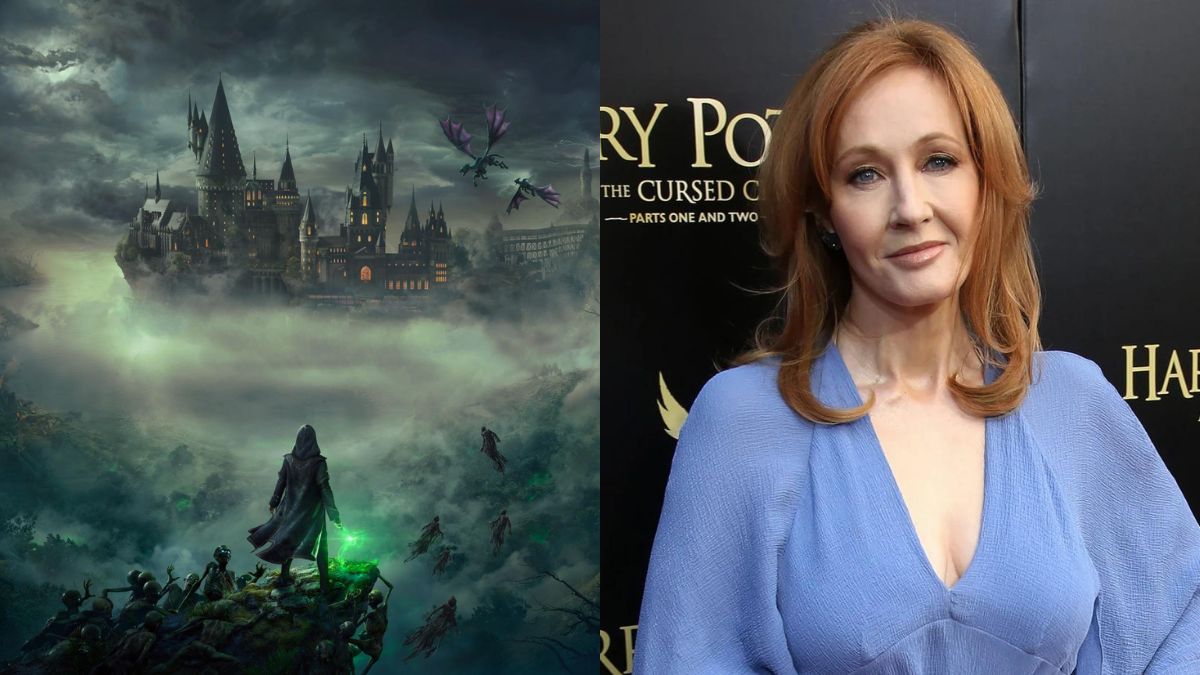Hogwarts Legacy, the open-world wizarding game set in the Harry Potter universe, was mired in controversy long before its release. Even after the game’s release, it’s still a thoroughly controversial topic, with several game outlets refusing to cover it and others providing additional context to clarify some gameplay issues that may have gone unnoticed by many consumers. Read on for a breakdown of what exactly happens in the world of The Boy Who Lived.
JK Rowling and transphobic rhetoric
Pictures via Avalanche Software and NBC
Arguably the biggest elephant in the room is Harry Potter series author JK Rowling. During a blessed time, the worst thing Rowling was known for was her rather timid centrist politics, but in 2020 she started bringing up transphobic talking points on Twitter, such as mocker an article referring to “people who menstruate” and assimilate the existence and idea of a gender spectrum and non-binary gender as “(erasing) the lived reality of women around the world”. These days, Rowling loosely identifies with the term “TERF” (trans-exclusive radical feminist), though she often denies being transphobic. However, he has frequently found himself in the company of other well-known transphobes like Maya Forstater and Graham Linehan, and often amplifies transphobic organizations like the LGB Alliance while criticizing transinclusives like Mermaids and Stonewall.
But what does this have to do with Hogwarts Legacy? Well, although it has been confirmed that Rowling had no direct involvement in the creation of the game, the world of Hogwarts Legacy is entirely based on her intellectual property. Even though she wasn’t getting royalties from the Legacy license, which is supposed to be, in fact, her, Rowling you made it clear that she personally views the financial and cultural capital she receives from her intellectual property as supporting her worldview. As such, many potential buyers of the game find it hard to justify donating money, airtime, and support that will go to someone who is actively working to make the world a worse place for trans people.
Goblins and Anti-Semitic Tropes
Image via Warner Bros. Pictures
The Harry Potter books have been a point of discomfort for some Jewish communities in the past, primarily due to the depiction and description of many of the goblin characters they contain. With a hooked nose and an obsession with coins that effectively places them as the de facto banking class in the wizarding world, goblins fit uncomfortably close to many anti-Semitic tropes that persist in the real world even to this day. Harry Potter is far from the only fantasy IP to use this troublesome shortcut to create an entire race – Tolkien’s dwarfs have had similar discussions around them for decades – although Rowling sees fit to remove some rights as well fundamental humans of this subclass. add a few centuries of oppression and rebellion for good measure.
Hogwarts Legacy, unfortunately, takes these associations even further. Set during one of the aforementioned Goblin Rebellions in 1890, Legacy sees players attempting to thwart Ranrok, the Goblin leader who hunts the same forbidden magical artifacts as them. However, instead of taking a more sympathetic stance towards the villain, the writers portray him as greedy and power-hungry, rather than the leader of an underdog group trying to make things right for them. In a vacuum, that wouldn’t necessarily be a bad thing (there are plenty of anti-Semitic villains in video games, after all), but with the parallels to Jewish history, common ties to anti-Semitic conspiracies, and anti-Semitic visuals . in-game language, it didn’t work very well for many players. To make matters worse, players soon discovered that one of the Goblin artifacts was just a shofar, a Jewish musical instrument, which itself references a Goblin uprising of 1612, the same year as the uprising. of Fettmilch of life. in a brutal pogrom against the Jewish populations.
Other controversies
JK Rowling’s transphobic commentary and potential anti-Semitic tropes are the main talking points about Hogwarts Legacy, but there are a few other, possibly smaller, issues that have also been reported to make fans feel bad. ‘easy. In 2021, designer Troy Leavitt left the project after his YouTube channel, which featured a lot of anti-social justice and pro-GamerGate content, came to light. Although she claimed the choice was hers, many assumed that the revelation of her videos was a catalyst in the decision.
Eyebrows were also raised when it was revealed that players can freely use Unforgivable Curses in the game, namely Imperius Curse, Cruciatus Curse, and Killing Curse, which can control, torture, or assassinate their targets respectively. The inclusion of curses themselves wasn’t necessarily the main concern per se, but rather the fact that the game doesn’t seem to care whether you use them or not.
Eventually, possibly in an effort to get away from Rowling, the game’s developers included the first officially trans character in the Harry Potter universe. However, fans were divided on the merits of Sirona Ryan, who works at a bar in Hogsmeade.
Source

